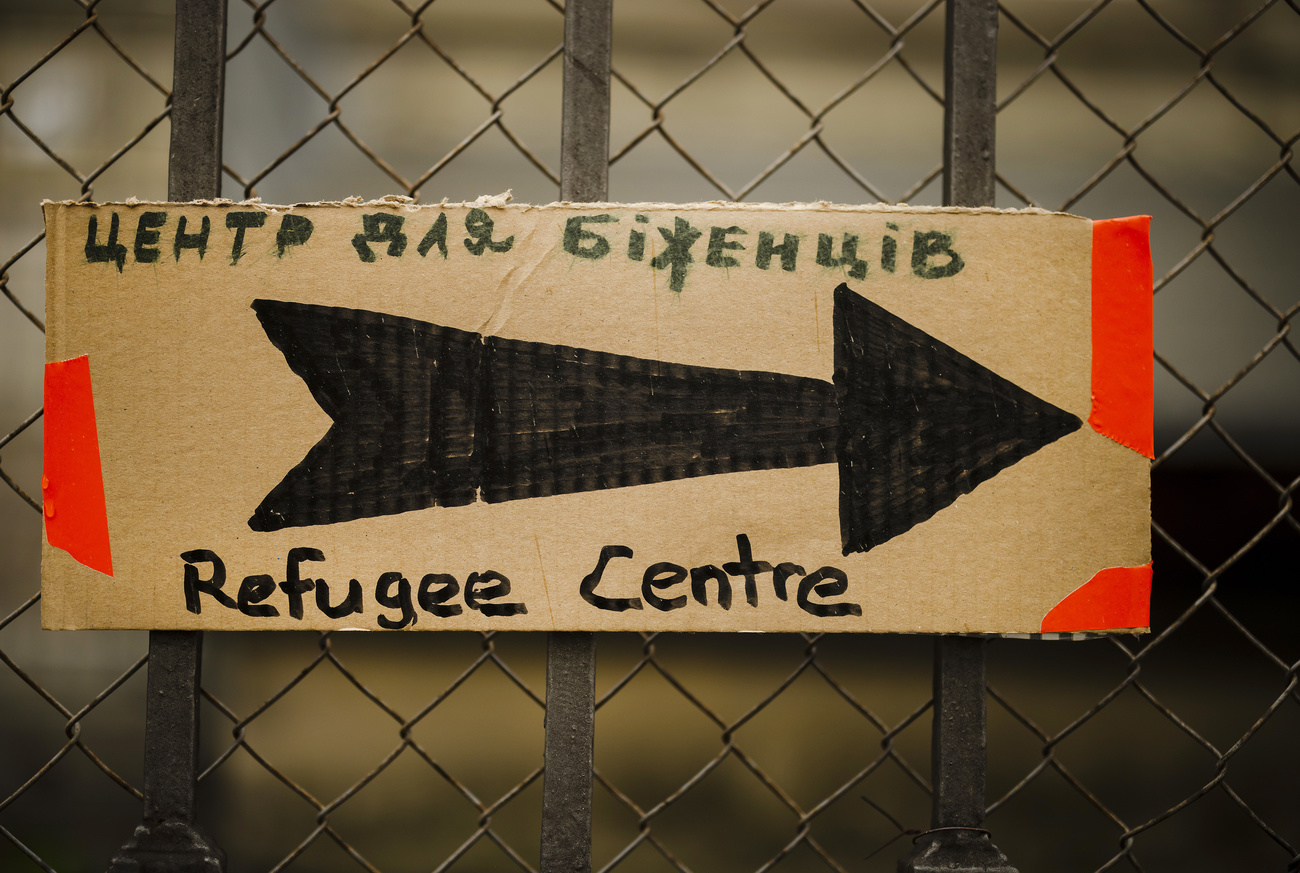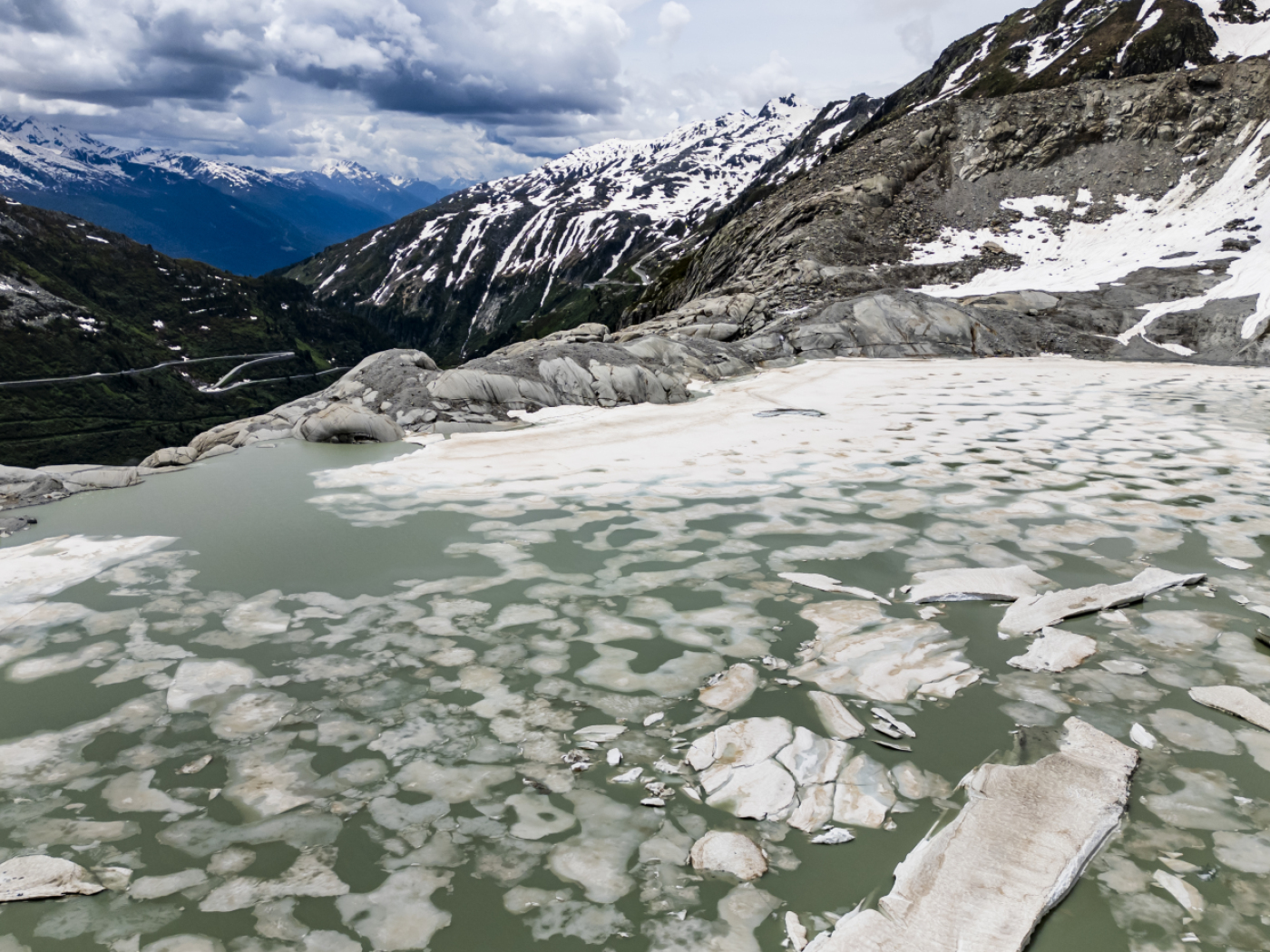Swiss intake of Ukrainian refugees could be the largest in decades

Switzerland may end up taking in far more Ukrainian refugees than government authorities initially estimated, according to a report by the NZZ am Sonntag. The education system will need to adapt.
The Alpine nation is expected to experience the largest influx of refugees in decades, notes the German-language weekly in its Sunday edition.
Swiss Justice Minister Karin Keller-Sutter calculated that 50,000 refugees could reach Switzerland by June. But cantonal authorities tasked with dealing with the new arrivals expect as many as 300,000 refugees to reach Switzerland by the end of the year.
Between 500 to 1,000 Ukrainian refugees have been arriving in Switzerland daily in the aftermath of Russia’s full-scale invasion of Ukraine.
The cantons must adapt to this situation, according to Marcel Suter, president of the cantonal migration authorities, who was quoted by the newspaper.
The conflict in Ukraine has triggered mass displacement at a level and speed unseen in Europe since World War II. More than 3 million Ukrainians have fled their country in less than a month, including some 1.5 million children, according to the latest figures.
Swiss media reports on Sunday also paid attention to the potential challenge of integrating Ukrainian students. There are 200 Ukrainian students studying in Switzerland at present. That number could rise to 20,000 in coming months.
Students in need of integration
Le Matin Dimanche notes that a shortage of teachers will complicate efforts to integrate new students from Ukraine.
“For several years now, we have been experiencing a latent shortage at all levels,” Samuel Rohrbach, president of the French-speaking teachers’ union, told the newspaper. “Add to that the effects of the health crisis, the isolation that is still going on, the fatigue. We need additional staff and they don’t come up overnight.”
Elsbeth Stern, professor of education at the ETH Zurich, shared that view. “Welcoming children who do not understand any national language pushes schools to their limits,” she told the SonntagsZeitung.
The number of school children in some cantons could rise by 5 to 10%. That’s according to Dagmar Rösler, president of the German-speaking teachers’ union, who was quoted in the NZZ am Sonntag,
Many classes could soon have one or two Ukrainian children, she says, calling for adequate psychological support measures to be put in place.
Some cantons will call on retired teachers, university students or ask part-timers if they agree to increase their rates, Le Matin Dimanche reported. The cantons are also asking Ukrainian adults trained in teaching to contact them to identify opportunities to help at schools.
Prior to the Ukraine crisis, Switzerland was already expecting an increase in asylum applications for 2022. About14,500 asylum requests were filed in 2021.
The Taliban’s recent takeover of Afghanistan and three coups in West Africa have also contributed to a rise in the number of displaced persons around the world.

In compliance with the JTI standards
More: SWI swissinfo.ch certified by the Journalism Trust Initiative





















You can find an overview of ongoing debates with our journalists here . Please join us!
If you want to start a conversation about a topic raised in this article or want to report factual errors, email us at english@swissinfo.ch.